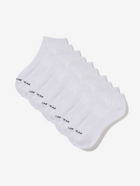In the ever-evolving world of fashion, a revolution is underway, and its driving force is none other than the fabrics that shape our garments.
Natural fabrics are now reshaping the fashion industry and our closets in ways that embrace sustainability and style.
In this blog we will take you through the transformative landscape of fashion as we explore how natural fabrics are reshaping the industry and your closet.
The Evolution of Fashion Fabrics
Fashion is a dynamic art form, continually evolving with time. Central to this evolution are the fabrics that shape our clothing choices. Let's take a journey through the history of fashion fabrics to understand their profound impact on style.
The Significance of Textiles in Cultural and Societal Shifts:
- Throughout history, textiles have played a pivotal role in reflecting and driving cultural and societal transformations.
- Fabrics have been more than mere materials; they have symbolized identity, tradition, and innovation. From the luxurious silks of ancient China to the elegant woolens favored by European nobility, each era's textile preferences told a story.
Fabrics as Symbols of Power and Status:
- Fabrics were often symbols of power and status, denoting the wearer's social standing and influence.
- The availability of certain materials often determines clothing choices, and the rarity of certain fabrics could drive up their value and desirability.
The Shift Towards Synthetic Materials in the Mid-20th Century
Fashion experienced a profound transformation in the mid-20th century with the widespread adoption of synthetic fabrics. This era marked a significant departure from traditional textiles, ushering in a new age of fashion innovation:
The Allure of Synthetic Fabrics:
Synthetic fabrics such as polyester, nylon, and acrylic gained immense popularity due to their affordability, and aesthetic appeal.
These materials brought vibrant colors, innovative textures, and easy-care options to the fashion world, capturing the imagination of both designers and consumers.
Environmental and Health Consequences of Synthetic Fabrics:
While synthetic fabrics revolutionized fashion, they also brought along environmental and health challenges.
The production of synthetic materials often relied on petrochemicals, contributing to air and water pollution. The environmental footprint of synthetic fabrics has become a growing concern.
Reports of skin irritations and allergic reactions associated with synthetic textiles raised health-related questions, prompting consumers to reconsider their clothing choices.
The Return to Natural Fabrics
In recent years, there has been a remarkable resurgence of interest in natural fabrics, including but not limited to cotton, bamboo, hemp, Tencel, and more.
These classic and timeless textiles have regained prominence in the fashion industry, gracing runways and filling wardrobes once again.
The resurgence of natural fabrics can be attributed to a collective awakening to the environmental challenges posed by synthetic materials.
Consumers and fashion enthusiasts alike have become more conscious of the detrimental impact of synthetic fabric production on the planet, from resource depletion to pollution.
Recognizing the Fashion Industry's Environmental Impact
With increased awareness, there is a growing recognition of the fashion industry's significant environmental impact.
The production, transportation, and disposal of clothing contribute to issues such as water pollution, carbon emissions, and textile waste.
Natural Fabrics as a Responsible Choice
In response to this environmental awakening, natural fabrics have emerged as a responsible choice for those who seek to reduce their ecological footprint.
Fashion consumers are now actively seeking out clothing made from materials like cotton, linen, and hemp, which are sourced through sustainable and eco-friendly practices.
Natural Fabrics as a Symbol of Conscious Consumerism
Embracing natural fabrics is more than just a fashion statement; it's a symbol of conscious consumerism.
By choosing clothing made from natural materials, individuals cast their votes for a greener and more sustainable world.
Natural fabrics align with a set of values that go beyond style, emphasizing ethical production, minimal waste, and responsible sourcing.
These fabrics represent a broader commitment to a lifestyle that respects the planet and supports environmentally friendly fashion practices.
The Environmental Benefits of Natural Fabrics
Biodegradability
One of the most significant environmental advantages of natural fabrics lies in their biodegradability. Unlike synthetic materials that persist in landfills for centuries, natural fabrics break down naturally over time.
This biodegradability reduces the burden of textile waste on the planet and aligns with the principles of a circular economy.
Reduced Water Usage in Cultivation
Natural fabrics often require significantly less water during cultivation compared to their synthetic counterparts. Examples include:
Organic Cotton: Grown with sustainable practices, it reduces water consumption and supports healthier soil.
Hemp: Known for its minimal water requirements, it conserves this precious resource.
Lower Energy Consumption in Production
The production of natural fabrics typically involves fewer energy-intensive processes compared to synthetic materials. This results in a reduced carbon footprint.
Natural fibers like cotton, hemp, and bamboo can be processed with less reliance on fossil fuels and energy-consuming chemical treatments.
The Role of Natural Fabrics in Reducing the Fashion Industry's Carbon Footprint
Shifting Towards Organic Cotton, Hemp, and Tencel
To mitigate the fashion industry's substantial carbon footprint, there's a notable shift towards natural fabrics.
Organic cotton, grown without synthetic pesticides or GMOs, reduces reliance on energy-intensive agricultural practices.
Hemp's resilient growth and minimal water requirements make it an eco-friendly choice, further reducing the industry's carbon emissions.
Tencel, derived from sustainably sourced wood pulp, represents a closed-loop production process with lower environmental impact.
Lowering Greenhouse Gas Emissions:
The fashion industry has long been criticized for its contribution to greenhouse gas emissions. The adoption of natural fabrics offers a tangible solution to mitigate this impact.
By choosing materials like organic cotton, hemp, bamboo, and Tencel, the fashion industry can significantly reduce its reliance on energy-intensive production methods, resulting in lower greenhouse gas emissions.
Allwear's Natural Fabric Collection
At Allwear, our core commitment revolves around eco-conscious fashion. We've meticulously curated a collection of clothing that combines style, sustainability, and versatility. Here's a closer look at our natural fabric collection:
Organic Cotton Essentials
Our range includes organic cotton essentials that are as gentle on your skin as they are on the environment. Crafted without synthetic pesticides or GMOs, these pieces exemplify responsible farming practices.
Luxurious Tencel
Our Tencel hybrid bomber jackets and cargos represent luxury and eco-consciousness. Derived from sustainably sourced wood pulp, Tencel offers a soft texture and a closed-loop production process, reducing environmental impact.
Bamboo Comfort Wear
Discover unmatched comfort and style in our bamboo collection, including bra tops, and leggings Bamboo's rapid growth and minimal water requirements make it exceptionally eco-friendly, while its natural antibacterial properties help keep you at your best.
The Benefits of Allwear's Collection for Consumers and the Environment
Creating an On-The-Go Capsule Wardrobe
Allwear's collection empowers you to create an on-the-go capsule wardrobe. Versatile pieces can be mixed and matched effortlessly, reducing the need for excess clothing and simplifying your daily outfit decisions.
Reducing Clothing Waste and Pollution
By investing in durable, eco-friendly clothing, you contribute to reducing clothing waste and the pollution associated with fast fashion. High-quality materials ensure longer product lifecycles.
Offering Sizing for All and Promoting Inclusivity
Allwear is committed to inclusivity, offering sizing for all body types from XXS to 7XL. We believe that fashion should be accessible and enjoyable for everyone. Apparel for all ( Unisex fashion ) is also a great way to combat the overproduction issue we are trying to help solve in fashion.
Elevating Comfort and Style
Our collection not only focuses on sustainability but also on elevating comfort and style. You can feel good about what you wear, both in terms of aesthetics and the positive impact on the planet.
Conclusion
As the fashion industry witnesses a profound shift towards sustainability and eco-consciousness, natural fabrics stand at the forefront of this transformative revolution. By embracing the timeless elegance and environmental advantages of these materials, we not only reshape our closets but also contribute to a greener and more ethical fashion future.
Join us at Allwear in championing this change and making a difference.



